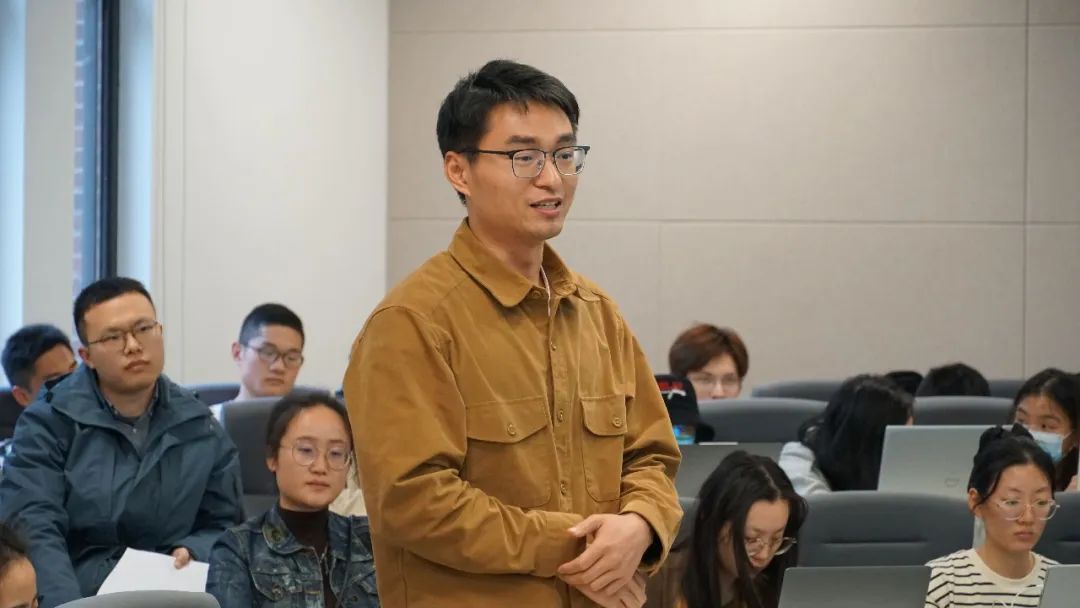On April 10, the iZJEer Talkteamed up with ZIBS Insights Series for a joint lecture, featuring Song Fei, Chairman of Sinopharm Group Medical Management Co., Ltd. Song discussed "Opportunities and Challenges in the Development of China's Healthcare Industry," engaging with students and faculty. The lecture attracted significant interest from ZJE and ZIBS communities, offering attendees fresh insights into the healthcare industry's development.
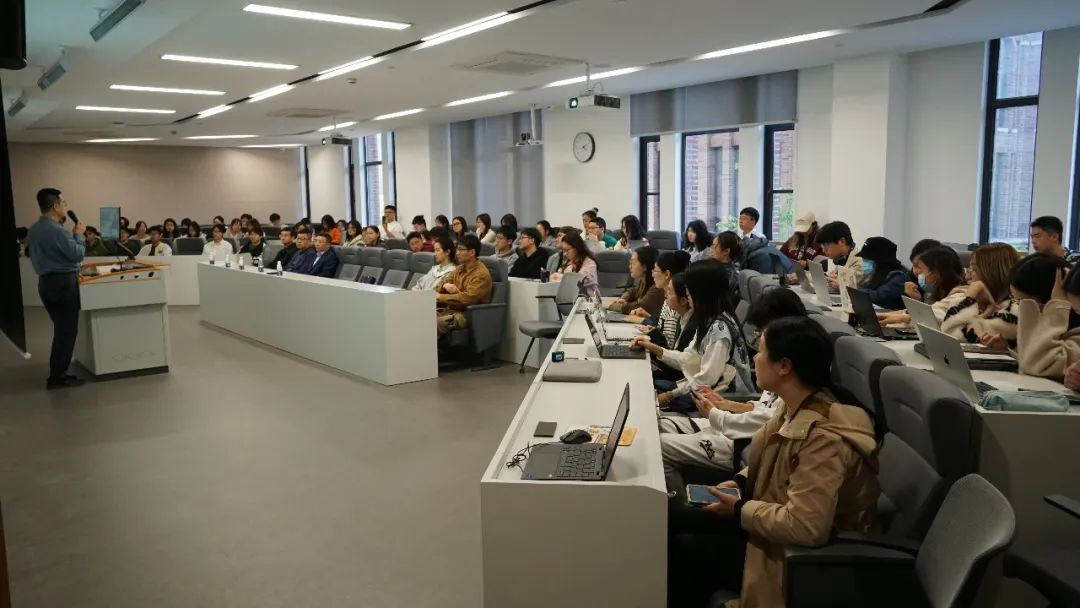
The event, hosted by ZIBS Assistant Professor Chen Xiaohua, began with an introduction by Ye Zhiguo, Vice Dean of the Zhejiang University-University of Edinburgh Institute (ZJE). Ye highlighted the event's aim as the first collaboration between iZJEer Talk and ZIBS Insights Series, hoping to inspire cross-disciplinary thinking among attendees and open the door for more events in the future.
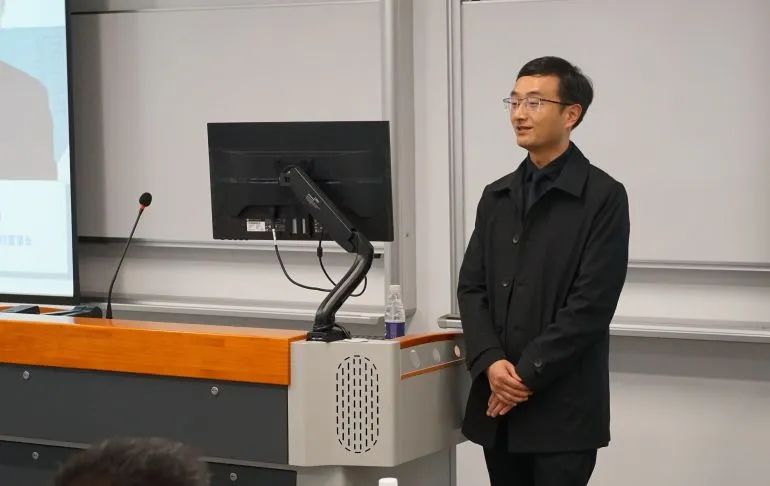
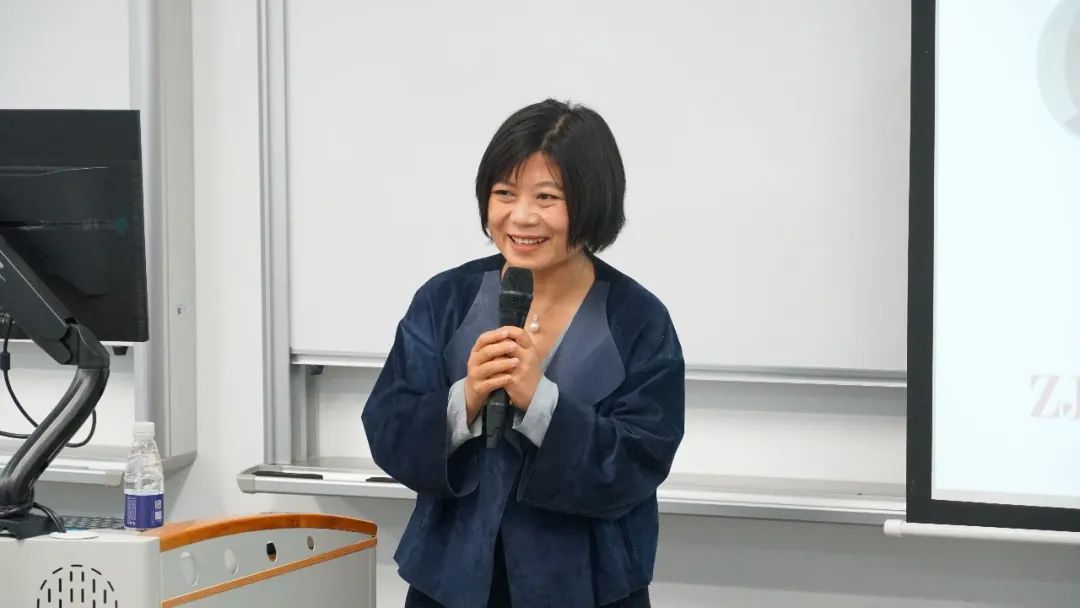
Song Fei began by describing Sinopharm Group’s growth and structure before and after the COVID-19 pandemic. He noted the extensive changes China’s healthcare industry has undergone, emphasizing the sudden impact of the pandemic on the global healthcare sector, with China being no exception. Post-pandemic, the industry now faces new growth opportunities and challenges.
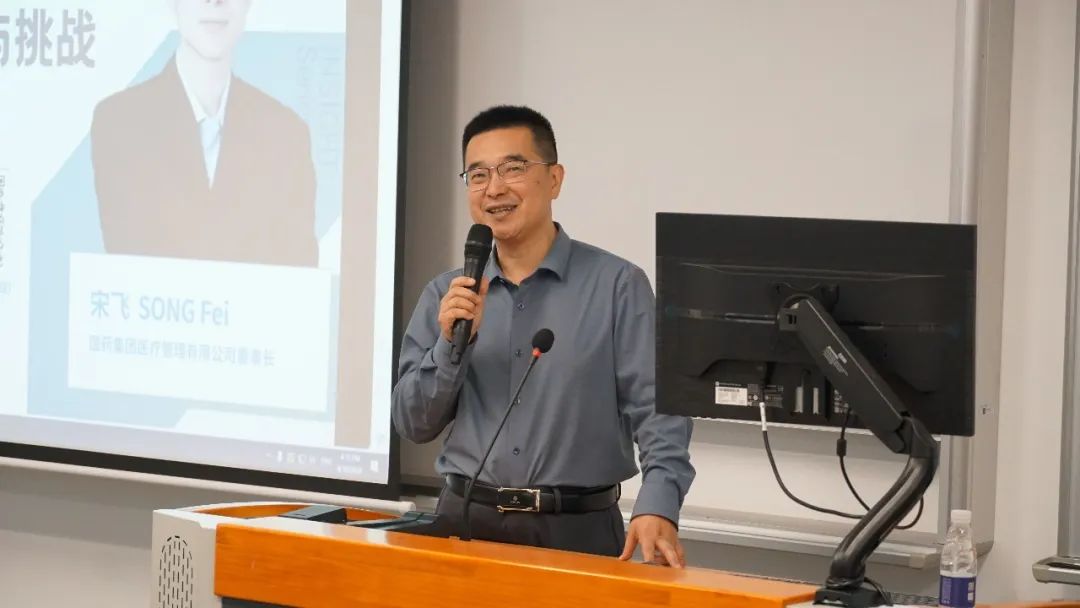
The pandemic accelerated innovation and the application of medical technology, fostering digitalization and intelligent healthcare, which has boosted efficiency and quality in healthcare services. However, the pandemic also brought economic pressures and structural issues such as an aging population, challenging the industry to elevate service standards, optimize resource allocation, and drive high-quality growth.
Song highlighted primary healthcare improvements as essential, pointing out that primary healthcare forms the foundation of the service system and is crucial for the public’s health and resource optimization. However, many community hospitals currently fail to meet public needs adequately. Song stressed the need to channel resources to primary healthcare and establish a robust primary care network to address the issue of resource imbalances. He also called for greater emphasis on elevating primary healthcare standards to provide higher-quality and more convenient services.
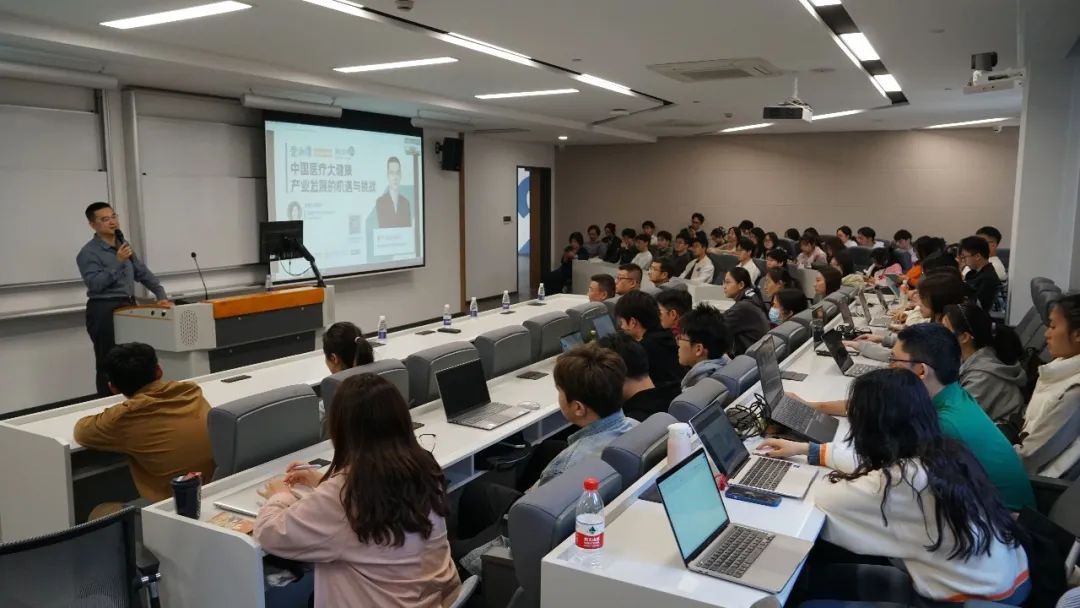
With rising living standards and increasing health awareness, the healthcare industry has vast potential for growth. Song encouraged students to seize the moment, emphasizing, "Opportunities come to those who are prepared." He advised them to enhance their skills and gain diverse experiences to make the most of future opportunities.
Students engaged with Song on various topics, including industry prospects, career planning, and the integration of laboratory research and clinical practice. Song responded to questions and shared insights from his experience across industries, countries, and institutions, providing valuable inspiration.
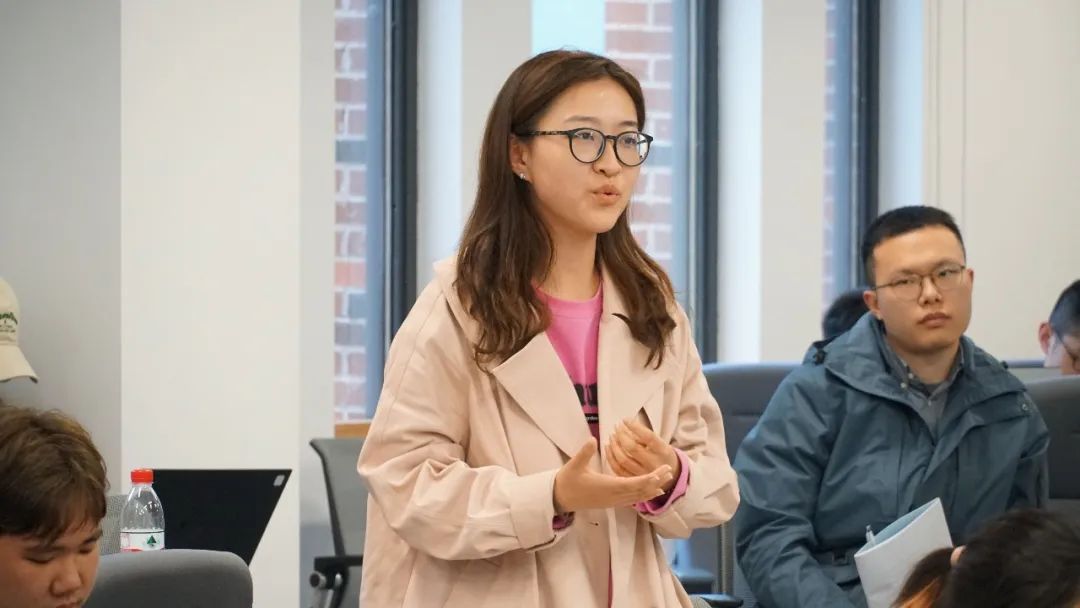
At the event’s conclusion, Wang Junlong, Director of the Clinical Research Center at the China National Pharmaceutical Group, joined the discussion to share perspectives on the healthcare industry’s future development, trends, and innovation. He noted that clinical research plays a vital role in the sector’s growth and emphasized the importance of interdisciplinary collaboration.
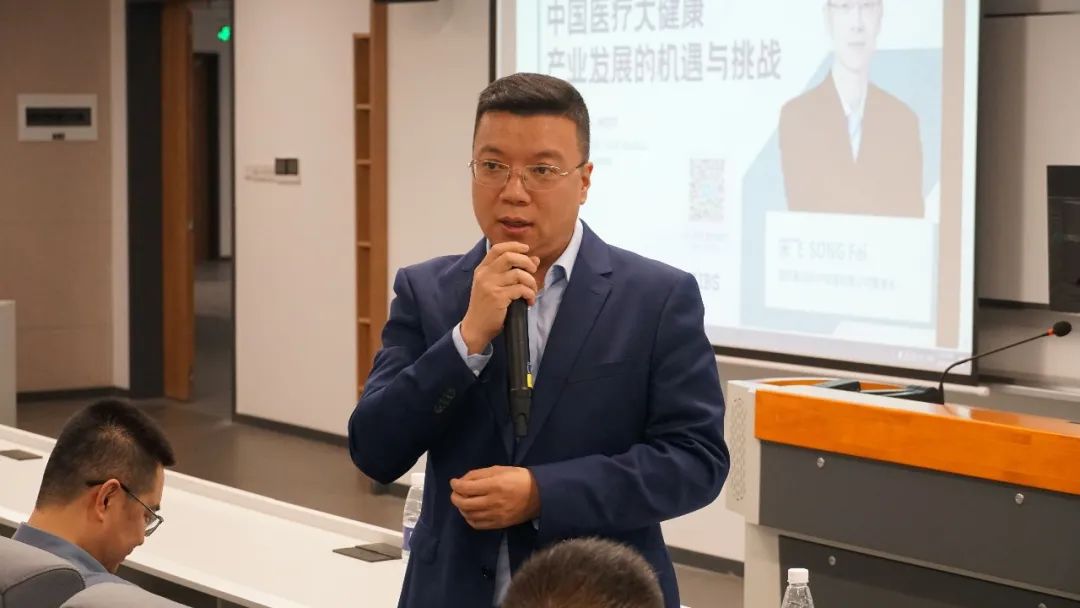
This lecture not only offered professional insights into industry developments but also created an interactive platform for faculty and students to engage with industry experts. We look forward to more exciting events with ZIBS in the future!
Student Reflections
Xiong Shihan, Biomedical Class 2102:
In Song’s lecture on "Opportunities and Challenges in China’s Healthcare Industry," he shared insights into the sector’s growth potential, particularly in China’s healthcare field. He discussed trends in medical devices and pharmaceuticals, offering strategies for addressing challenges, which gave me a clearer understanding of the industry’s outlook. Song mentioned employment challenges, prompting me to consider my career path. As a soon-to-graduate biomedical student, I realized the need to continuously improve to adapt to the field’s competitiveness, requiring not only knowledge and skills but also practical research experience. Lifelong learning is essential to standing out in this competitive field.
Li Mingshi, Bioinformatics Class 2102:
Attending the lecture on "Opportunities and Challenges in China’s Healthcare Industry" left a deep impression. It provided valuable insights into the sector’s potential and challenges. I am inspired by China’s rapid growth in healthcare, a pillar of the national strategy, supported by rising living standards and health awareness. The government’s support and policy guidance offer a favorable environment for industry innovation. However, I also recognize issues such as industry imbalance, technological innovation, and talent development. With advancing technology and evolving medical demands, innovation and interdisciplinary collaboration are vital for cultivating talent. Strengthening regulation and enhancing quality are key to sustainable growth.
Zheng Ximeng, Biomedical Class 2102:
On April 10, Song Fei delivered a profound talk on "Opportunities and Challenges in China’s Healthcare Industry." His presentation was a macro analysis and a deep dive into sector details and future trends. Song outlined China’s position in the global health industry, showcasing the rapid development in China’s healthcare field and the importance of innovation in driving growth. He highlighted the rise of smart healthcare and the role of technologies like AI and big data in improving service efficiency and quality. This lecture broadened my understanding of the healthcare sector, making me optimistic about its potential with technological and policy support.


